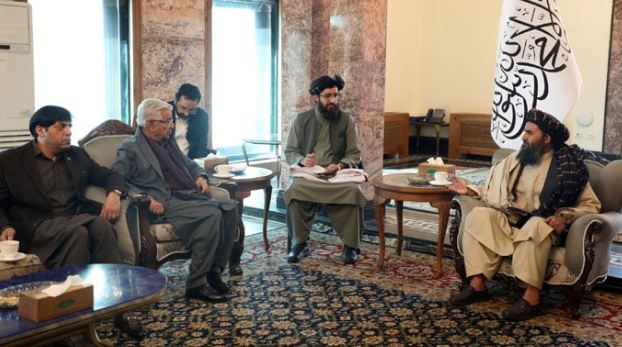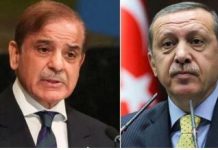ISLAMABAD: Amid the worsening of ties between the two countries due to rising terror attacks by Tehreek-e-Taliban Pakistan (TTP), a high-level delegation led by Defence Minister Khawaja Asif visited Kabul where it met with acting Deputy PM Mullah Abdul Ghani Baradar.
The Foreign Office, in a statement on Wednesday, said that the high-ranking delegation will meet with Afghan officials to discuss security-related matters including counter-terrorism measures.
The delegation includes Inter-Services Intelligence (ISI) chief Lt Gen Nadeem Ahmed Anjum, Pakistan’s Special Representative for Afghanistan Mohammad Sadiq, Foreign Secretary Asad Majeed Khan, and Kabul mission head Ubaid Ur Rehman Nizamani.
The delegation, apart from the deputy PM, also met senior leadership of the Afghan government — including Defence Minister Mawlavi Mohammad Yaqoob Mujahid, Interior Minister Sirajuddin Haqqani, and Foreign Minister Amir Khan Muttaqi.
“Matters relating to the growing threat of terrorsim in the region, particularly by TTP and ISKP came under discussion. The two sides agreed to collaborate to effectively address the threat of terrorism posed by various entities and organizations,” the Foreign Office said in a statement.
Both sides, according to the statement, agreed to strengthen bilateral cooperation in various fields to further enhance the fraternal relations between the two countries.
This is the first meeting between the senior leadership of the two countries after the November 2022 visit by State Minister for Foreign Affairs Hina Rabbani Khar.
The visit comes after the closure of the Torkham border crossing by the Afghan authorities following a row over the entry of citizens into Pakistan without documents. A Pakistani soldier had also sustained injuries when the Afghan Taliban opened fire at a border.
A senior Pakistan government official at the Torkham border said, “The Afghan border officials made it an issue, saying Pakistani authorities should allow the patients and their attendants without visas or legal travel documents to enter Pakistan for treatment in Peshawar or elsewhere.”
The decision to strengthen security measures by mandating Afghan citizens to carry travel documents was made following the Peshawar police lines suicide attack.
In a separate statement about the meeting, the office of the Afghan deputy PM stated that the two parties discussed economic cooperation, regional connectivity, trade, and bilateral relations during the meeting.

















